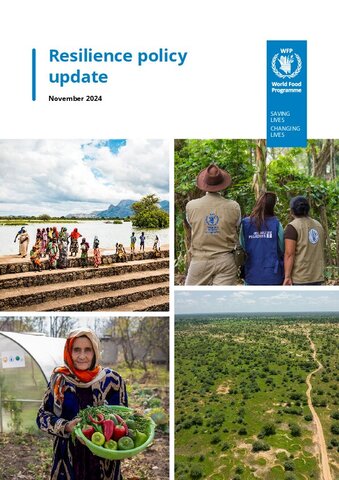
This updated resilience policy replaces the 2015 version, guiding WFP’s approach to strengthen resilience through targeted, multi-partner programming. It prioritizes high-risk communities exposed to recurrent shocks and focuses on empowering women, girls, and marginalized groups; improving livelihoods to enable people to better manage shocks and stressors; and strengthening and localizing capacities and systems to safeguard resilience gains before, during and in the aftermath of shocks.
WFP’s resilience work is based on its comparative
advantages, including a deep-rooted presence and
relationships in shock-exposed communities and countries
and an ability to transition between humanitarian and
resilience programming, deliver at scale, operate in
challenging environments and leverage global and local
supply chain capacities. Through its resilience
portfolio, WFP will: a) prioritize programme
integration, layering, sequencing and scale including
across the nexus; b) adopt people-centred and
participatory approaches; c) ensure that programming is
context-specific, evidence-informed and
conflict-sensitive; d) foster collaborative partnerships
and leverage its convening role; and e) build upon and
strengthen local and national capacity to leverage
impact, sustainability and scale.
WFP's resilience policy is aligned with
international policy on food security and nutrition,
disaster risk reduction and climate change adaptation
including the Sendai Framework for Disaster Risk
Reduction, the Paris Agreement on climate change and the
Sustainable Development Goals and it builds on the
United Nations Common Guidance on Helping Build
Resilient Societies.


